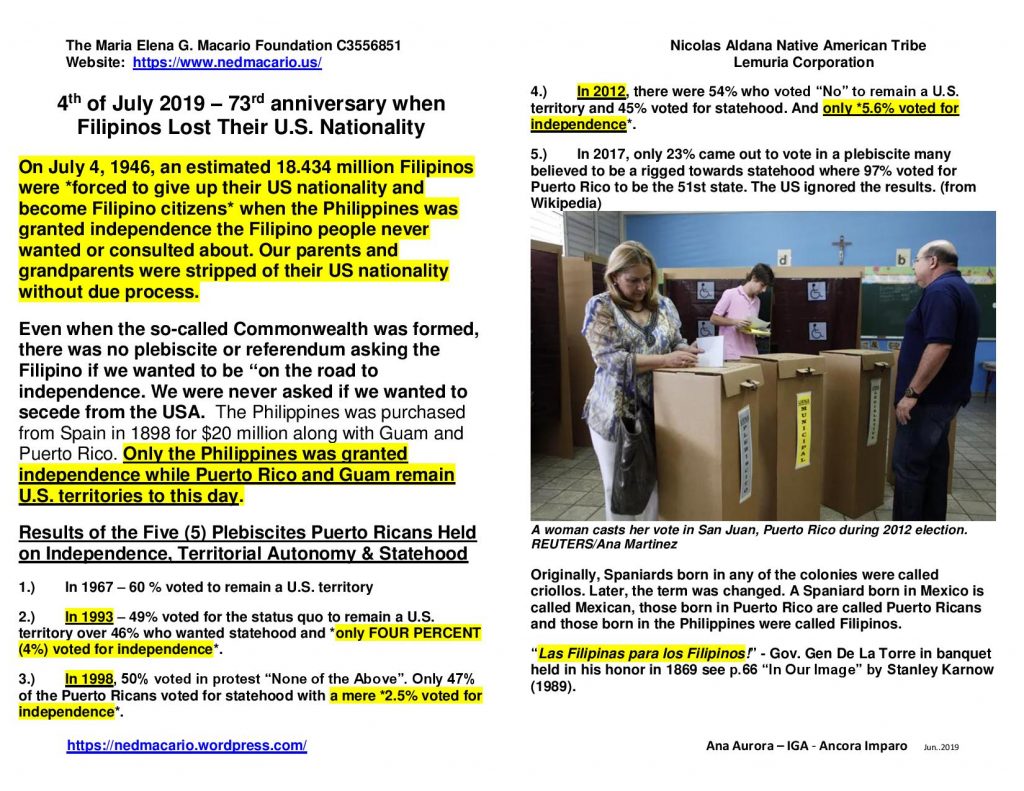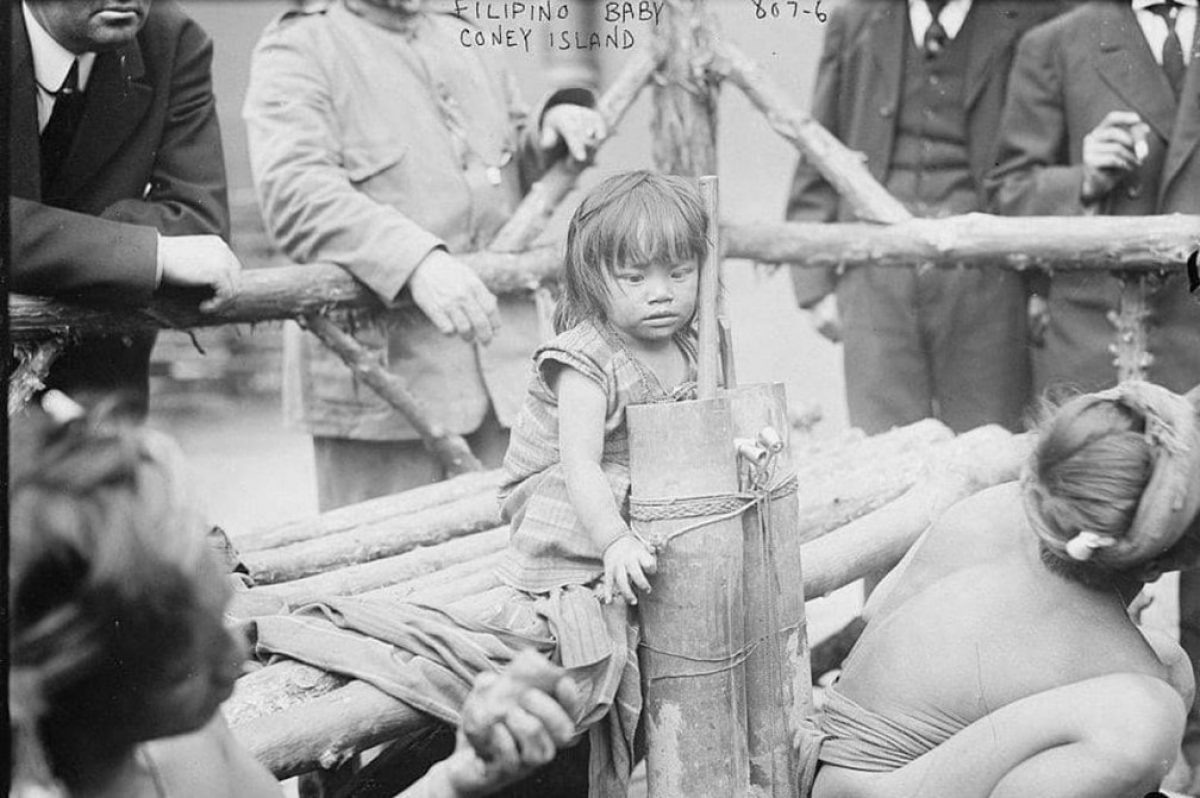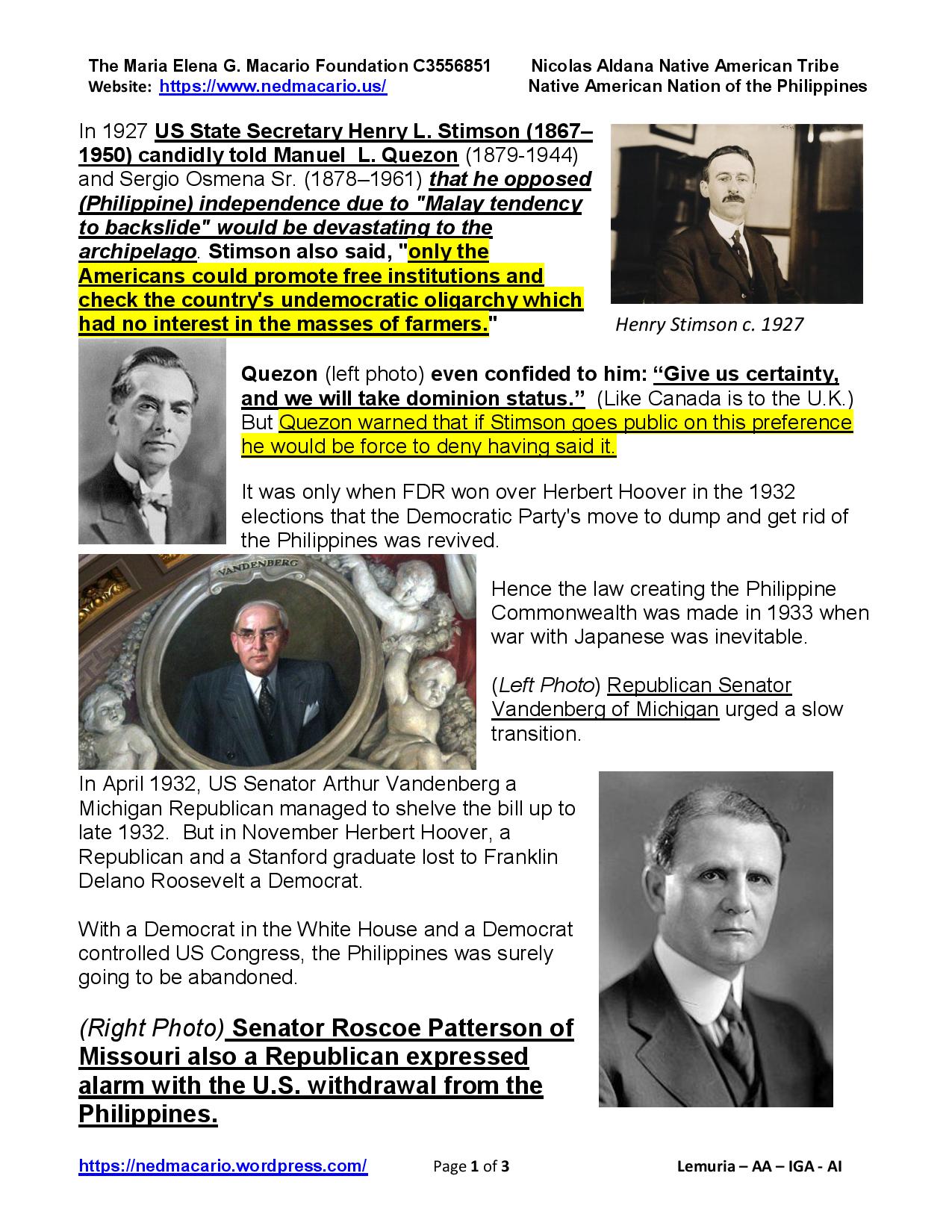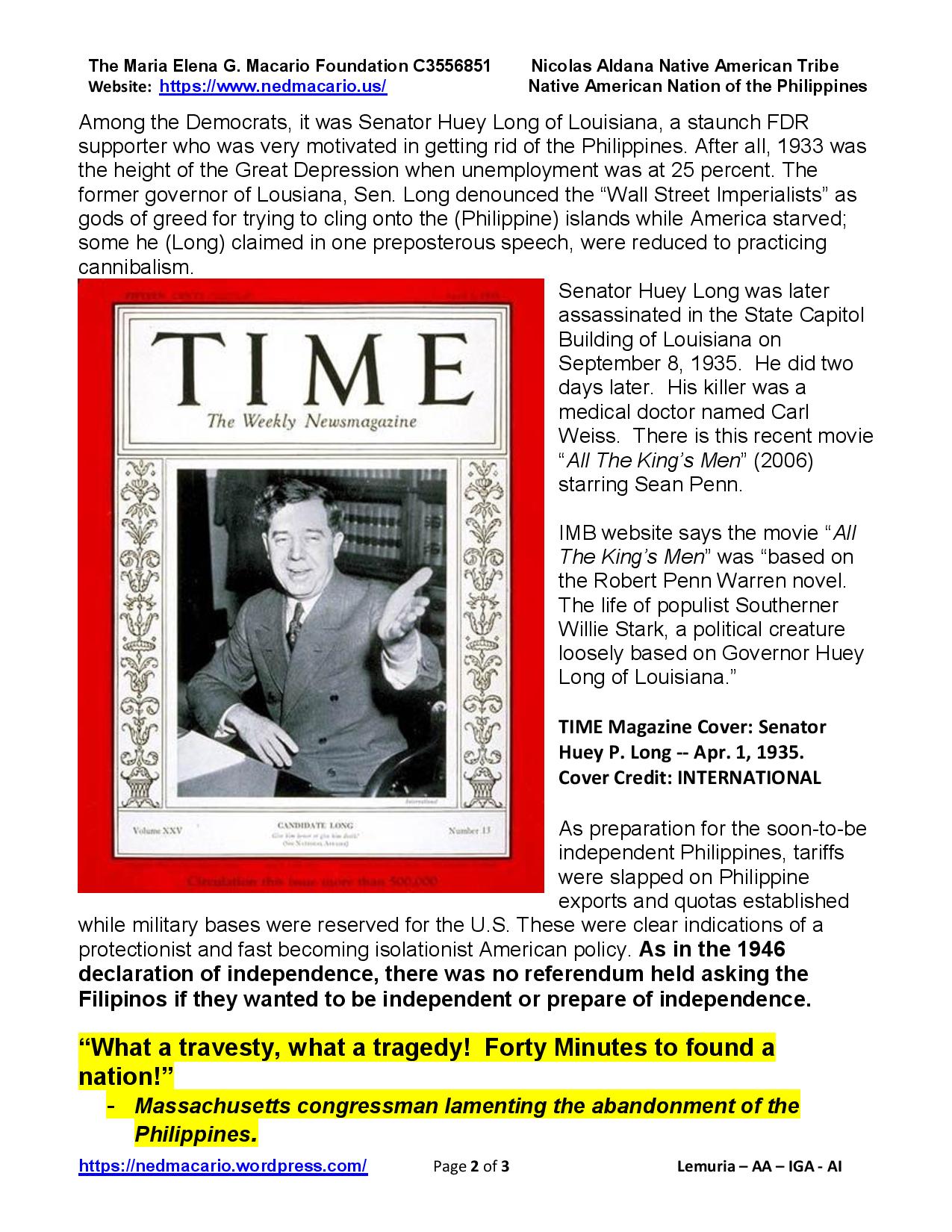DID THE TYDINGS-McDUFFIE LAW THAT TOOK AWAY FILIPINO’S U.S. NATIONALITY SIGNED BY FDR ON MARCH 24, 1934 INSPIRED THE NAZI’s TO PASS THE NUREMBERG LAWS ON SEPT. 15, 1935 THAT ALSO TOOK AWAY the CITIZENSHIP of JEWS in GERMANY?
Updated September 21, 2018
THE FIRST ABANDONMENT OF THE PHILIPPINES, A U.S. TERRITORY – 1934
“Erratic US policy and fraying alliances give China a free hand”
How Beijing is winning control of the South China Sea
SIMON ROUGHNEEN, Asia regional correspondent
June 13, 2018 14:04 JST
– https://asia.nikkei.com/Spotlight/Cover-Story/How-Beijing-is-winning-control-of-the-South-China-Sea
==============
What the above Asia Nikkei article calls” erratic U.S. policy and deteriorating relations with old allies is what I call the “Jekyll and Hyde” U.S. Foreign Policy.
Question: Is the abandonment of the Philippine territory in 1934, signaled the start of the “Jekyll and Hyde” U.S. Foreign Policy?
DID THE TYDINGS-McDUFFIE LAW THAT TOOK AWAY FILIPINO’S U.S. NATIONALITY INSPIRED THE NAZI’s TO PASS THE NUREMBERG LAWS which also TOOK AWAY the CITIZENSHIP of JEWS in GERMANY?
October 9, 2014
Excerpt: “I’d like to begin with an excerpt from Chapter 35, “Franklin D. Roosevelt and the Shadow of War, 1933-1941,” from the AP US History textbook used in High Schools:
“The American people were not so much giving freedom to the Philippines as they were freeing themselves from the Philippines–they proposed to leave the Philippines to their fate.“
This is a realistic and honest assessment of what Tydings-McDuffie Act of 1934 was all about–the official abandonment of the Philippine territory.
The Philippine Independence Act of 1934, the official name of Tydings-McDuffie Act, was another step toward isolationism sweeping America as the threat of war in Europe was growing.
From the paranoid and unrealistic protectionist foreign policy of 1920s, the US started to clamp down on immigration when over 530,000 immigrants came to the US from Southern and Eastern Europe.
These European and other immigrants probably knew the Treaty of Versailles would give Europe 20 years of peace before another war would break out. In the usual knee-jerk reaction still seen today, Congress enacted the Emergency Quota Act of 1921. This quota-based restriction was further reduced from 3% to 2% when the Immigration Act of 1924 was passed to replace the Quota Act of 1921.
Exempt were the Canadians and even Latin Americans. The Filipinos were not affected by immigration laws, since the Philippines was not yet abandoned.
The crash of 1929 and the succeeding bank run of 1930 pushed the American economy to the Great Depression, which in turn further strengthen and justified isolationism.
On Sept. 18, 1931, the Japanese began the war in the Manchuria and by Feb. 27, 1932, the Japanese has occupied Manchuria. This alarmed American politicians and were eager to abandon the Philippine territory. Tariff-free Philippine agricultural products seen as competition by the American farmers in the Southern states provided additional incentive for American politicians to abandon the Philippines.
As 60,000 Filipinos relocated to the mainland in 1931, the idea of giving independence and freedom to the Filipinos was revived. Sen. Huey Long of Louisiana, a Democrat and staunch FDR supporter, made absurd and exaggerated claims that some Americans were starving and were resorting to cannibalism while “Wall St. Imperialists as gods of greed continue to cling onto the (Philippine) islands.”
When American adventurism at the turn of the century vaulted the country into a world power, they did not have any idea of the responsibilities and implied duties a world power or lone superpower entails.
It seems US foreign policy reflects the immaturity and impulsive nature of American leadership when it comes to foreign relations, as shown by the Cold War, Korean War, Vietnam War and now post-Saddam Iraq.
With American foreign policy, one thing remained constant. Adventurism in the White House would take the country to exotic places and situations around the world, and when the going got tough, the ball along with our allies got dropped. Such was the case of Vietnam, when Nixon signed the 1973 Paris Peace Treaty ending America’s direct involvement in Vietnam and called it “Peace with honor.”
From: Philippines – Philippines as “Abandoned Territory” in the 1930s (Bienvenido Macario, USA) Tue, Apr 30, 2013 at 5:12 am
http://waisworld.org/go.jsp?id=02a&objectType=post&o=76513&objectTypeId=67329&topicId=17
BRIEF BACKGROUND & COMMENTS ON THE 1934 ABANDONMENT OF THE PHILIPPINES
DID THE TYDINGS-McDUFFIE LAW THAT TOOK AWAY FILIPINO’S U.S. NATIONALITY SIGNED BY FDR ON MARCH 24, 1934 INSPIRED THE NAZI’s TO PASS THE NUREMBERG LAWS ON SEPT. 15, 1935 THAT ALSO TOOK AWAY the CITIZENSHIP of JEWS in GERMANY?
Other references: American Pageant: U.S. History Chapter 35: Franklin D. Roosevelt and the Shadow of War 1933-1941
https://www.stjoes.org/ourpages/auto/2017/9/7/61982932/americanpageantchapter35.pdf
Here are the first three (3) pages of Chapter 35 AP History by David Kennedy 12th Edition.
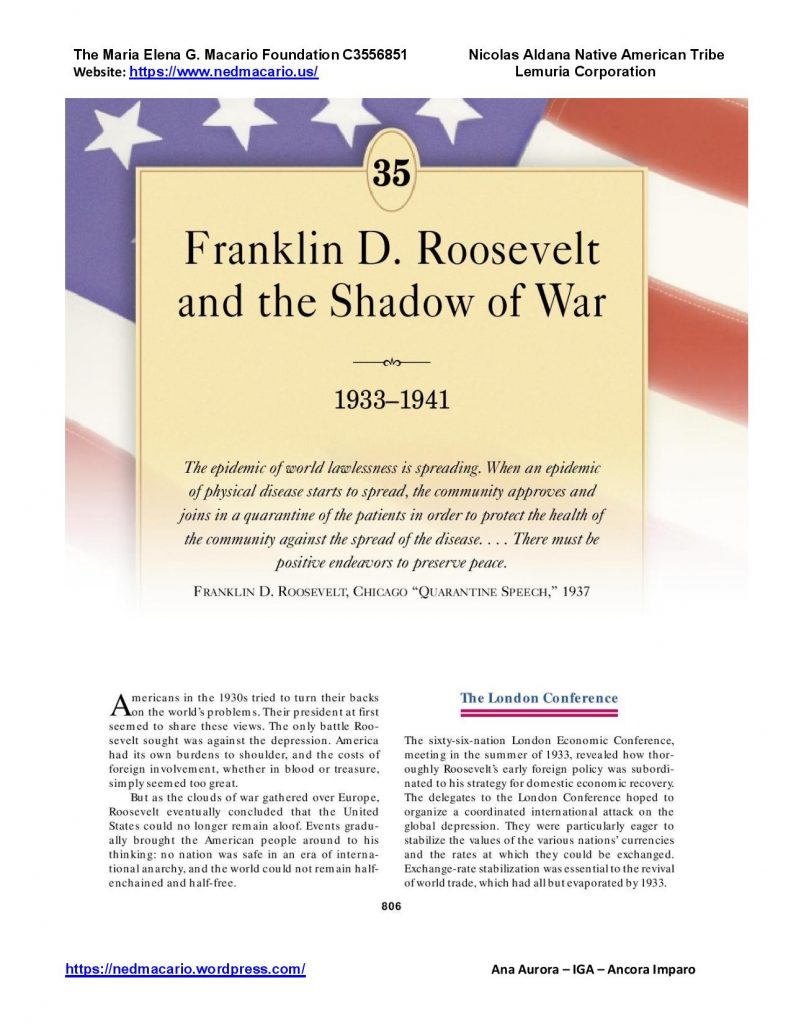
Page 807 of Chapter 35 discussed the abandonment of the Philippines when the Tydings- McDuffie Act of 1934, officially the Philippine Independence Act of 1934, was signed by FDR on Mar. 24, 1934. However what was not mentioned was the fact that the first attempt to abandon the Philippines was with the passing the Hare-Hawes-Cutting Act by the 72nd U.S. Congress. The second attempt to abandon the Philippines was after FDR defeat Herber Hoover in the 1932 election. “The Hare-Hawes Cutting Act” was passed by the Senate in December 1932 but was vetoed by Pres. Herbert Hoover. To Hoover’s surprise, Congress promptly overrode his veto, and the bill became law on Jan. 17, 1933. The act, however, required approval by the Philippine Senate, and this was not forthcoming. Filipino political leader Manuel Quezon led a campaign against the bill because of provisions in it that allowed the indefinite retention of U.S. military bases in the islands. The Tydings–McDuffie Act, substantially similar to the rejected measure but incorporating minor changes, was accepted by the Philippine Senate in 1934.” from Encyclopaedia Britannica .
Link: https://www.britannica.com/topic/Hare-Hawes-Cutting-Act
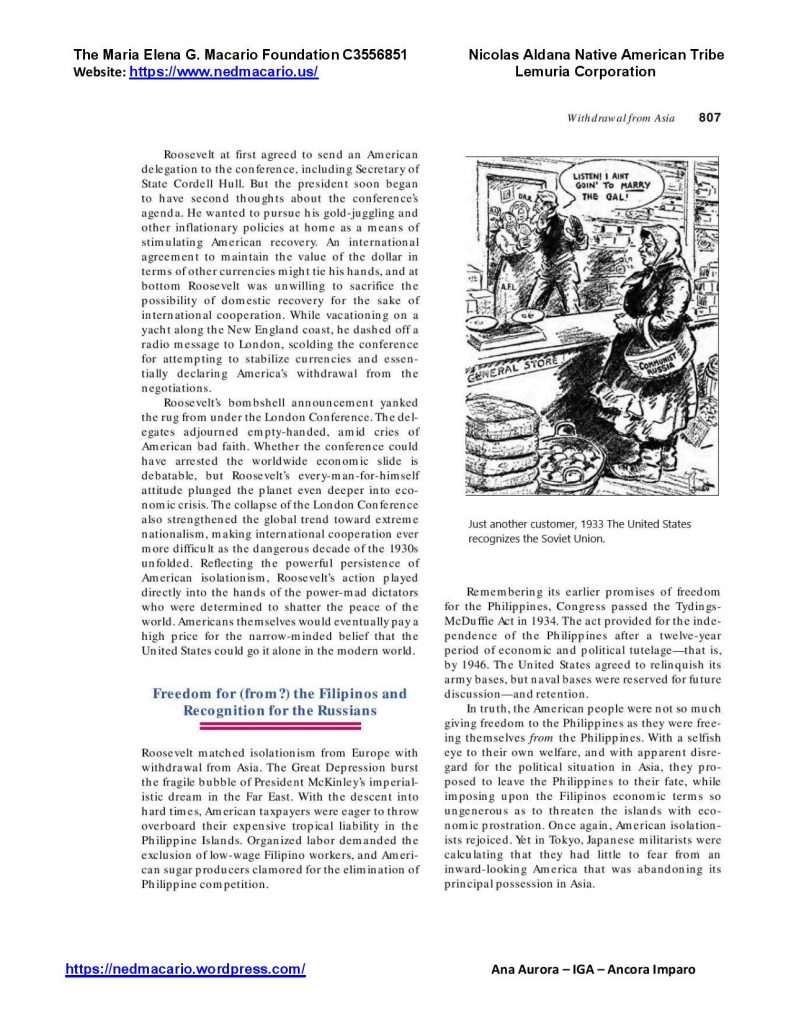
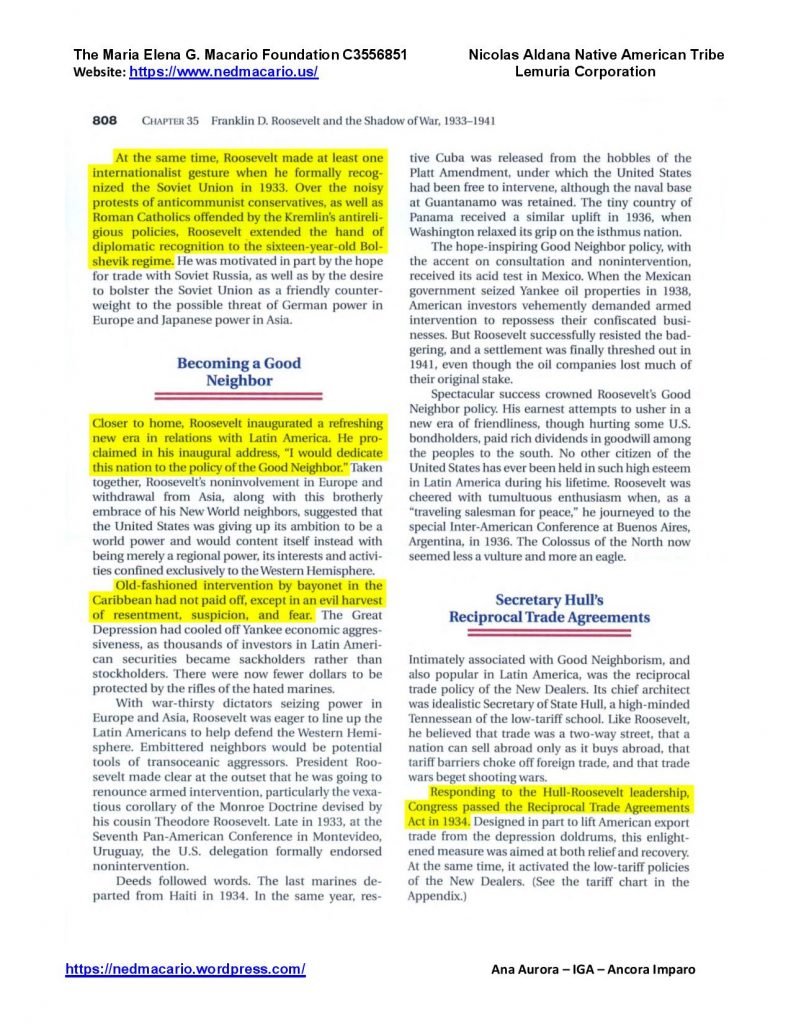
It must be pointed out that when the Tydings McDuffie Act was passed by the 73rd U.S. Congress and the creation of the so-called Philippine Commonwealth in 1935 or when the Philippines was granted independence in July 1946 or when Cory Aquino ordered the closure of the U.S. military bases in Dec. 1991, there was not a single referendum or any form of consultations with the Filipino people. Our parents and grandparents were never asked if they wanted to renounce their U.S. nationality, secede from the union with the USA and become independent Filipino citizens.
Whereas below is the list of five (5) Plebiscites Puerto Rico held on Independence, Territorial Autonomy and even Statehood from 1967 to 2017. If this is not discrimination, I don’t know what is.
How Filipinos lost their U.S. nationality is discussed on the post:
Fourth of July 2019: 73rd Anniversary when Filipinos lost their US Nationality
